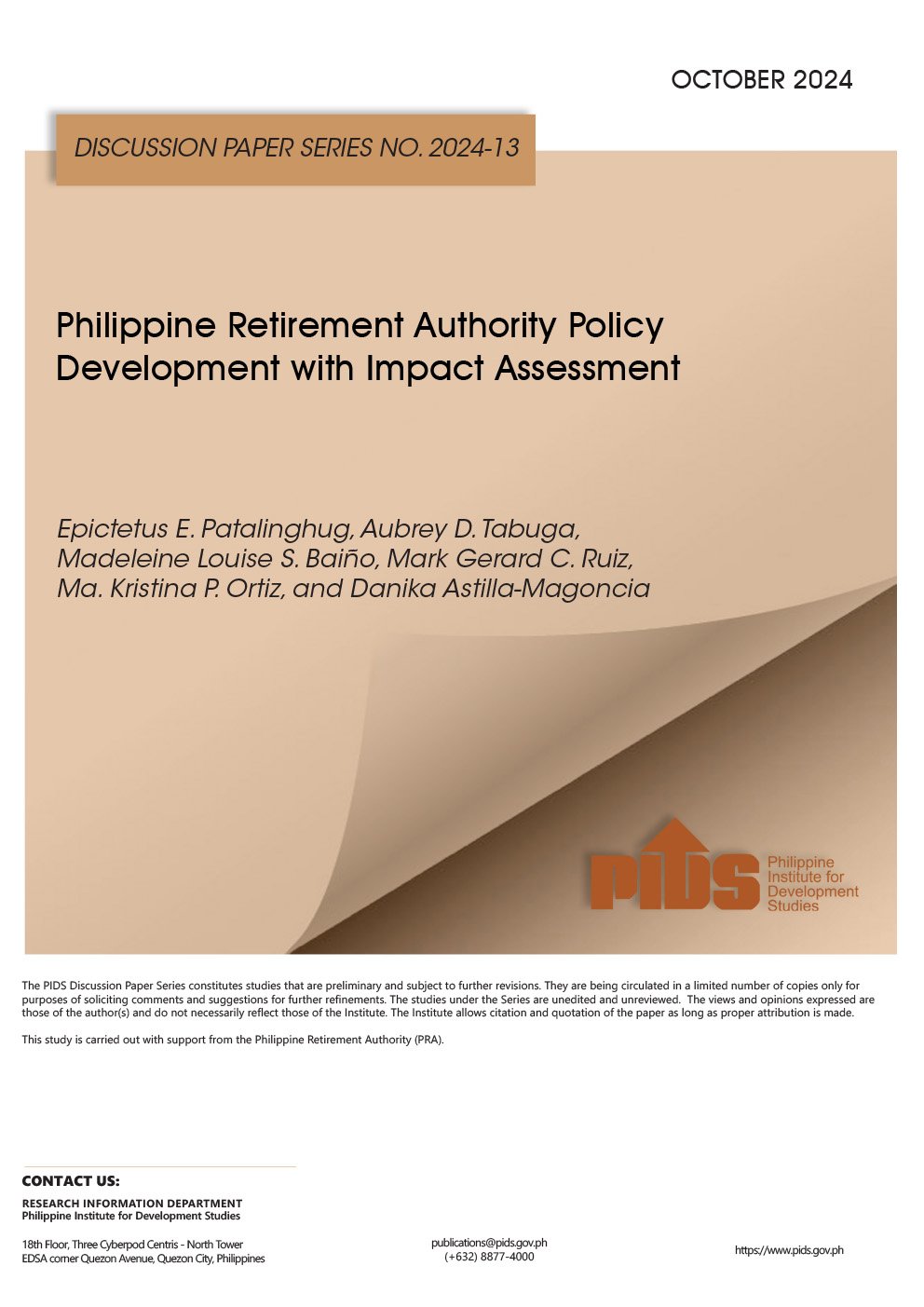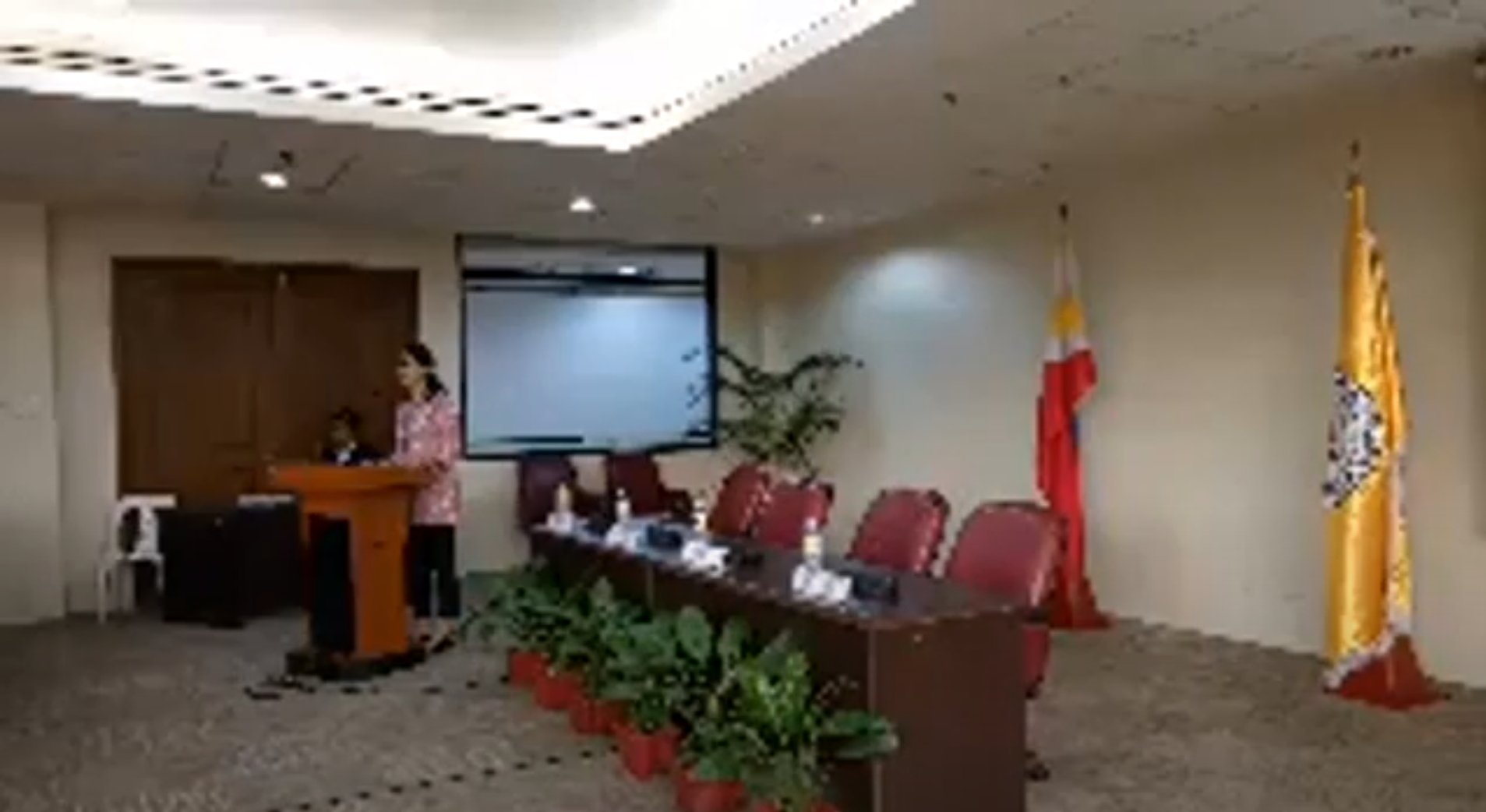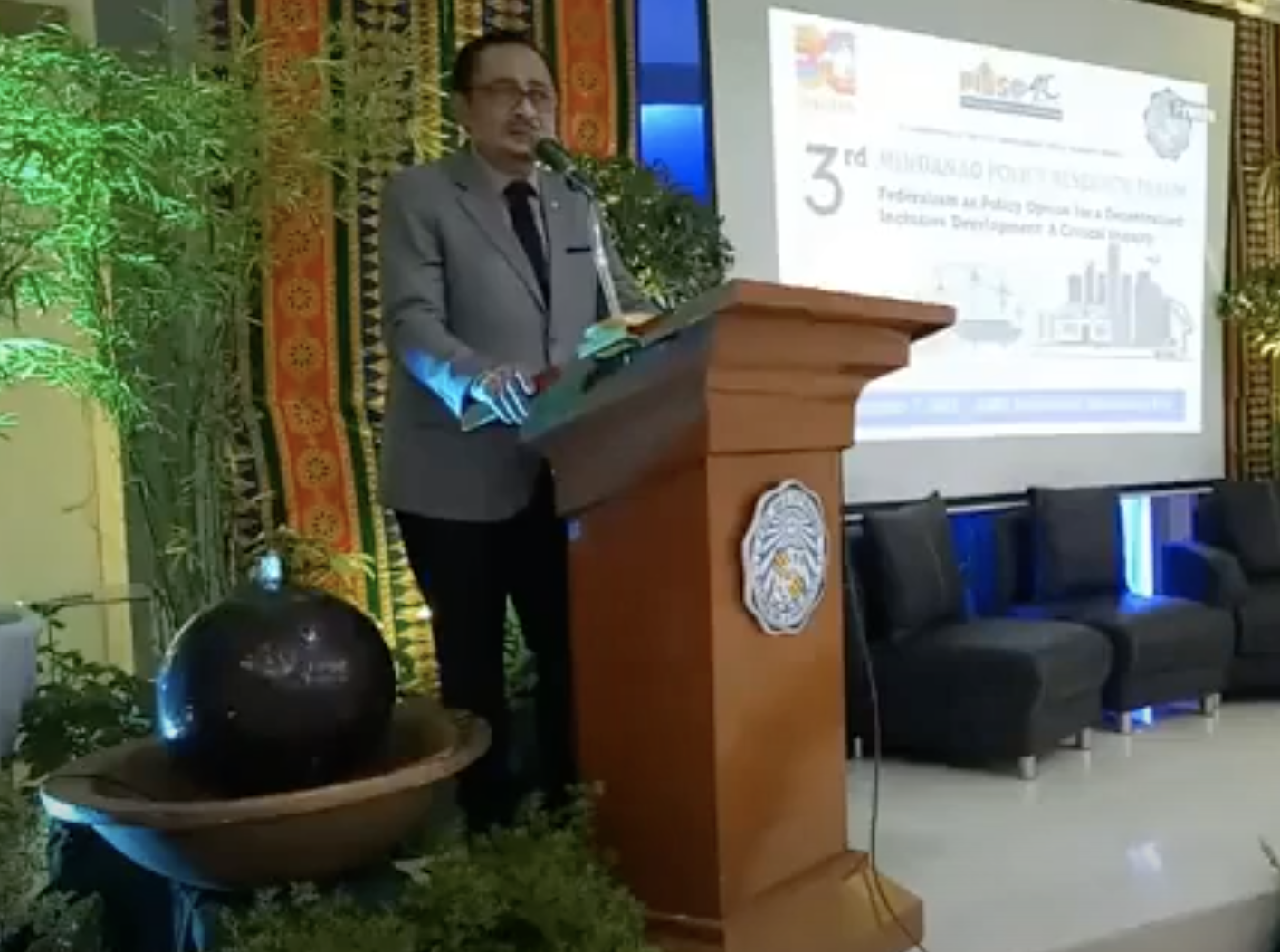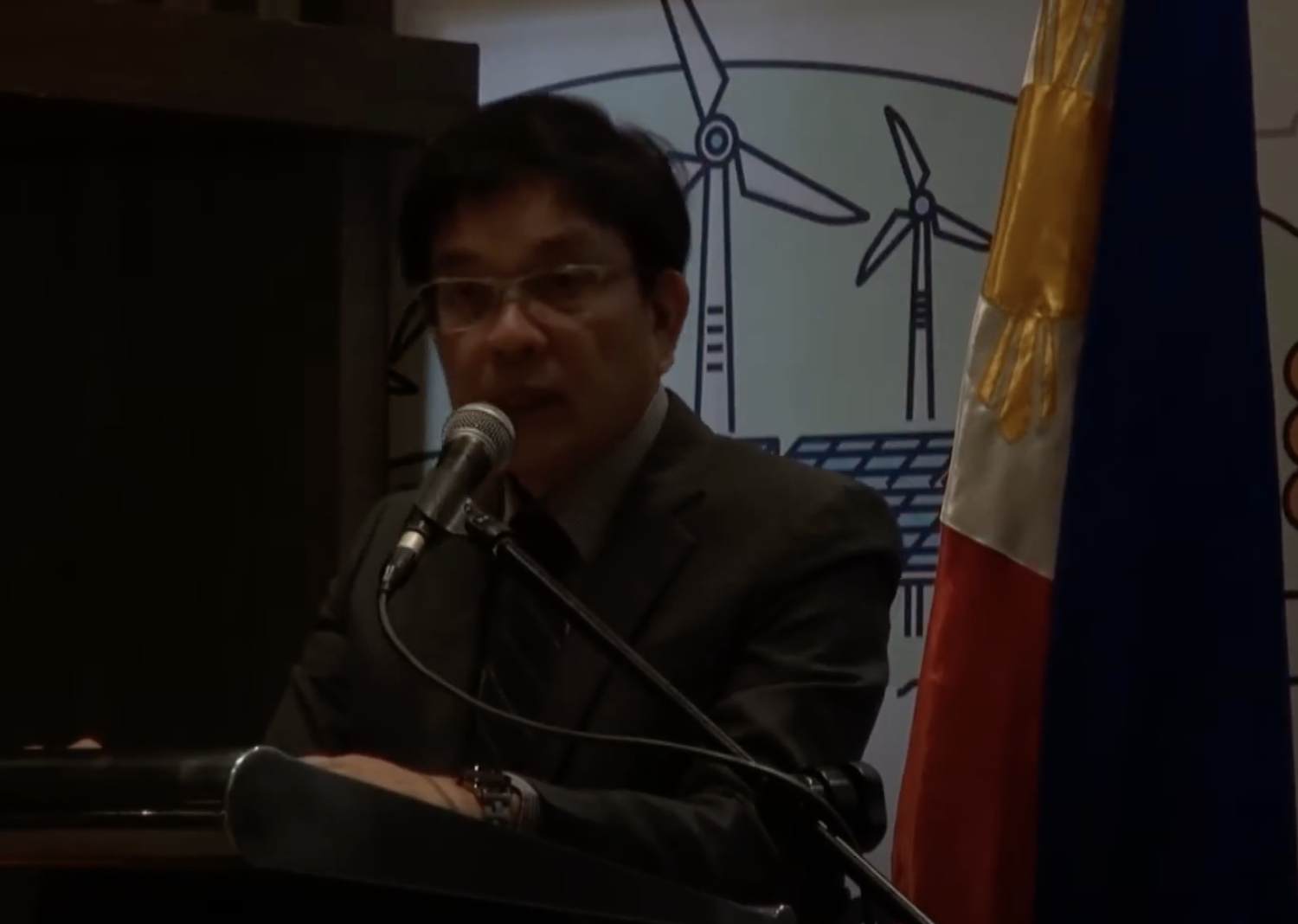Part Two
A GNARLY issue in the federal form of government is tax: how to collect, manage and distribute revenue.
Hezekiah Concepcion, professor at the Ateneo de Zamboanga University (AdZU), pointed to an imperial power as a model that should be avoided: the United States.
“In the US they do not use the term ‘decentralization’, they use the term ‘federal,’” Concepcion said in a forum in Zamboanga mid-September. “They want to emphasize that the freedom and wealth they enjoy came from them [federal states]; [that] they did not derive their power from the national government.”
Every federal state in the US have different ways of raising taxes and there are differences in the structures, according to Concepcion. The capital gains rate from one state might vary from another state, he explained.
The federal states and the central government—Internal Revenue Service—would both collect taxes, “so this is one of the pitfalls of federalism,” Concepcion said.
Different states would have different sources of revenues. The federal states also determine the tax rate, which usually depends on how much the particular state needs and also upon the decision of Congress.
“Should the Philippines decide to adopt this political system, the taxation powers of both the state and local governments must be clarified,” Concepcion said.
Greater power
IN the same forum, Romulo Emmanuel Miral Jr., director general of the Congressional Policy and Budget Research Department, said the power of the Philippine president over fiscal resources and appointments within the bureaucracy are greater than the power of the US president.
“This disproportionately huge powers of the Office of the President, together with the huge power to make economic grants, make the office a highly coveted prize among the elite,” Miral said. “In the absence of check and balances, this power can easily be abused.”
He added that even with the devolution of political power through the Local Government Code, the national government still accounts for 92 percent of the total government revenues. This huge resource is within the control of the central government, therefore the president, Miral explained.
“Aside from being linked to corruption, the concentration of political power in the president undermines the government’s capacity to provide public goods, such as in infrastructure, education and health services, that are important for inclusive economic growth.”
The current practice, Miral added, is to gather all the revenues collected from different parts of the country, place these in a central coffer and distribute the revenues back to different localities. So much so that the attitude of different political actors is to get as much as possible from the pooled resources, he explained.
“This resource can finance programs that are national in scope, such as defense and foreign relation,” Miral said. “But most of the projects funded by the national government have localized benefits.”
Exemptions
MIRAL added that “sectoral groups”, such as senior citizens, the Boy Scouts of the Philippines, cooperatives and the like, all have the tendency to minimize taxes—tax exemptions—coming from them.
“They think it should be the national government who must finance projects for them, not realizing that it is the population that shoulders the burden through the tax collected from them,” Miral said.
He noted that, among countries in Asia, the Philippines has the highest number of tax exemptions for specific sectors, about 143, while Vietnam has only 25 exemptions. Hence, the tax burden is only shared by few sectors, such as ordinary employees and private companies, according to Miral.
“These exemptions were granted by [their] patrons or legislators who were willing to take their ‘cause’ through lobbying,” he said. “For these groups to continue receiving favorable acts, they would have to maintain a ‘working’ relationship with the powerful centralized national government.”
Constraints
FOR Rosario Manasan, senior research fellow of the Philippine Institute for Development Studies, “the allocation of fiscal resources may enable or constrain governments in the exercise of their constitutionally-assigned legislative and executive responsibilities.”
Manasan noted that taxing powers and expenditures “are important instruments for regulating the economy.” She said that each level of government must have enough revenues to finance basic services for the public.
In a federal system, taxing and spending powers are decentralized to local governments or federal states, which give them a free hand to decide how and where to use their budgets, according to her.<
With this setup, Manasan said, the states will be able to spend their respective funds on projects and policies that are responsive to the needs of their respective localities without seeking approval from the national government.
Citing some practices in the distribution of taxing powers in federal states, Manasan pointed out that customs and excise taxes are assigned most of the time to the federal or national government. The same goes with corporate taxes.
However, in some federations, these may be under the concurrent jurisdiction of federal and state governments, she said.
Fiscal plans
MANASAN said personal income tax may be more directly attributed to the location of residence of the taxpayer.
But, she said, in the case of Austria and India, personal income tax has been exclusively under the federal or national government. Sales or consumption taxes, on the other hand, are shared by both federal and state governments, she added.
However, Manasan raised the possibility that some local government units may not be ready for the shift to federalism, especially in terms of development and financial stability.
To address the risks of greater disparities under a more decentralized form of government, Manasan said policy-makers must design a feasible intergovernmental transfer, which could be in the form of tax shares, unconditional block grants or specific-purpose conditional grants to assist poorer states or regions.
It can also be through equalization arrangements, which are administered by the federal or national government to help poorer states. She cited the current practice in Germany, Canada and Switzerland as example.
Still, Manasan noted several fiscal problems being experienced in the current unitary system should be resolved before the Philippines decides to shift to a federal form of government.
For one, “there is inadequate equalization”. “There are LGUs that get too much fund transfers relative to what they need while others have very limited,” Manasan said.
To be continued
A GNARLY issue in the federal form of government is tax: how to collect, manage and distribute revenue.
Hezekiah Concepcion, professor at the Ateneo de Zamboanga University (AdZU), pointed to an imperial power as a model that should be avoided: the United States.
“In the US they do not use the term ‘decentralization’, they use the term ‘federal,’” Concepcion said in a forum in Zamboanga mid-September. “They want to emphasize that the freedom and wealth they enjoy came from them [federal states]; [that] they did not derive their power from the national government.”
Every federal state in the US have different ways of raising taxes and there are differences in the structures, according to Concepcion. The capital gains rate from one state might vary from another state, he explained.
The federal states and the central government—Internal Revenue Service—would both collect taxes, “so this is one of the pitfalls of federalism,” Concepcion said.
Different states would have different sources of revenues. The federal states also determine the tax rate, which usually depends on how much the particular state needs and also upon the decision of Congress.
“Should the Philippines decide to adopt this political system, the taxation powers of both the state and local governments must be clarified,” Concepcion said.
Greater power
IN the same forum, Romulo Emmanuel Miral Jr., director general of the Congressional Policy and Budget Research Department, said the power of the Philippine president over fiscal resources and appointments within the bureaucracy are greater than the power of the US president.
“This disproportionately huge powers of the Office of the President, together with the huge power to make economic grants, make the office a highly coveted prize among the elite,” Miral said. “In the absence of check and balances, this power can easily be abused.”
He added that even with the devolution of political power through the Local Government Code, the national government still accounts for 92 percent of the total government revenues. This huge resource is within the control of the central government, therefore the president, Miral explained.
“Aside from being linked to corruption, the concentration of political power in the president undermines the government’s capacity to provide public goods, such as in infrastructure, education and health services, that are important for inclusive economic growth.”
The current practice, Miral added, is to gather all the revenues collected from different parts of the country, place these in a central coffer and distribute the revenues back to different localities. So much so that the attitude of different political actors is to get as much as possible from the pooled resources, he explained.
“This resource can finance programs that are national in scope, such as defense and foreign relation,” Miral said. “But most of the projects funded by the national government have localized benefits.”
Exemptions
MIRAL added that “sectoral groups”, such as senior citizens, the Boy Scouts of the Philippines, cooperatives and the like, all have the tendency to minimize taxes—tax exemptions—coming from them.
“They think it should be the national government who must finance projects for them, not realizing that it is the population that shoulders the burden through the tax collected from them,” Miral said.
He noted that, among countries in Asia, the Philippines has the highest number of tax exemptions for specific sectors, about 143, while Vietnam has only 25 exemptions. Hence, the tax burden is only shared by few sectors, such as ordinary employees and private companies, according to Miral.
“These exemptions were granted by [their] patrons or legislators who were willing to take their ‘cause’ through lobbying,” he said. “For these groups to continue receiving favorable acts, they would have to maintain a ‘working’ relationship with the powerful centralized national government.”
Constraints
FOR Rosario Manasan, senior research fellow of the Philippine Institute for Development Studies, “the allocation of fiscal resources may enable or constrain governments in the exercise of their constitutionally-assigned legislative and executive responsibilities.”
Manasan noted that taxing powers and expenditures “are important instruments for regulating the economy.” She said that each level of government must have enough revenues to finance basic services for the public.
In a federal system, taxing and spending powers are decentralized to local governments or federal states, which give them a free hand to decide how and where to use their budgets, according to her.<
With this setup, Manasan said, the states will be able to spend their respective funds on projects and policies that are responsive to the needs of their respective localities without seeking approval from the national government.
Citing some practices in the distribution of taxing powers in federal states, Manasan pointed out that customs and excise taxes are assigned most of the time to the federal or national government. The same goes with corporate taxes.
However, in some federations, these may be under the concurrent jurisdiction of federal and state governments, she said.
Fiscal plans
MANASAN said personal income tax may be more directly attributed to the location of residence of the taxpayer.
But, she said, in the case of Austria and India, personal income tax has been exclusively under the federal or national government. Sales or consumption taxes, on the other hand, are shared by both federal and state governments, she added.
However, Manasan raised the possibility that some local government units may not be ready for the shift to federalism, especially in terms of development and financial stability.
To address the risks of greater disparities under a more decentralized form of government, Manasan said policy-makers must design a feasible intergovernmental transfer, which could be in the form of tax shares, unconditional block grants or specific-purpose conditional grants to assist poorer states or regions.
It can also be through equalization arrangements, which are administered by the federal or national government to help poorer states. She cited the current practice in Germany, Canada and Switzerland as example.
Still, Manasan noted several fiscal problems being experienced in the current unitary system should be resolved before the Philippines decides to shift to a federal form of government.
For one, “there is inadequate equalization”. “There are LGUs that get too much fund transfers relative to what they need while others have very limited,” Manasan said.
To be continued









